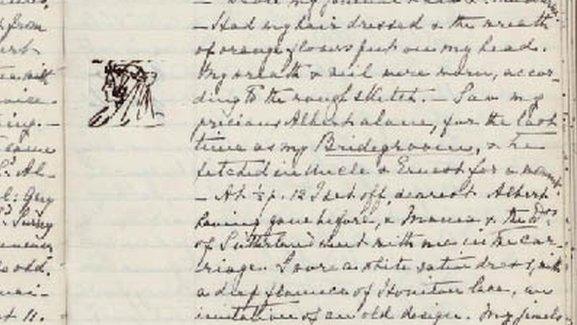King George III's private papers to go online
- Published
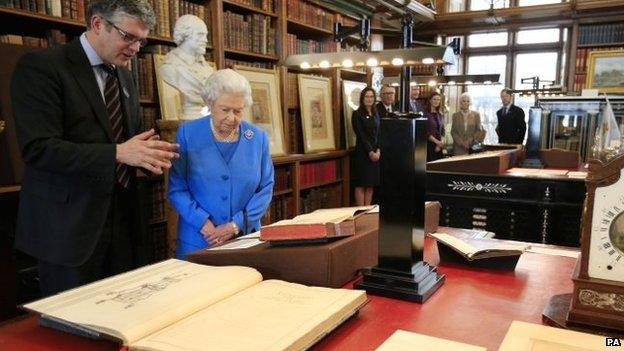
The Queen viewed documents from the archive of George III
The Queen has attended a launch of the digitised archive of thousands of King George III's private papers.
More than 350,000 documents from the king's 60-year reign are being made public by the Royal Archives, housed at the Round Tower at Windsor.
The Queen said she was "extremely interested" by the books and letters on display in the castle's Royal Library.
Previously unpublished, the papers will give an insight into Georgian Britain and its monarchy.
The work to make the historic documents available will be carried out by experts from King's College London and the Royal Archives.
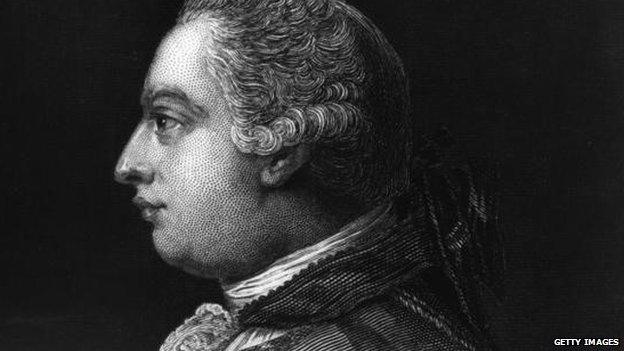
King George III ruled for 60 years and died at Windsor Castle in 1820
The Queen is said to have been "stunned" by the beauty of royal gifts given to her forebear George IV.
She joked that "you don't get gifts like that anymore," according to Dr Joanna Newman, international vice principal of King's College London.
"The Queen said she was stunned by the beauty of the gifts and letters," she added.
Among them was a 200-year-old poetry book given to the royal family in 1812 by the Shah of Persia, Fath Ali.
It is the first time the Queen has seen the documents, which were previously kept under lock and key in the royal family archives.
Among them was a letter from US Founding Father John Jay to George Washington, dated 1781, and another letter sent to King George III by a spy named Aristarchus.
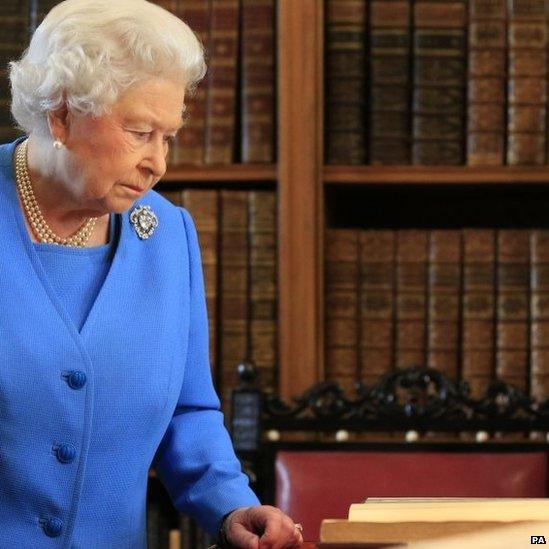
It was the first time the Queen has seen the documents
It is hoped the work will transform the understanding of Georgian Britain at a time of profound cultural, political, economic and social change.
It is part of of a long-term project to digitise and display material contained in the private archive.

King George III
Born George William Frederick on 4 June 1738 in London
He was the third Hanoverian king of Great Britain
He was the first Hanoverian monarch to use English as his first language
During his reign, Britain lost its American colonies
He married Charlotte of Mecklenburg-Strelitz in 1761 and the couple had 15 children
In 1801, he became the first king of the new United Kingdom of Great Britain and Ireland
He suffered from recurrent fits of mental illness and after 1810, his son, George, ruled as prince regent
He remained at Windsor Castle until his death on 29 January 1820
- Published15 April 2013
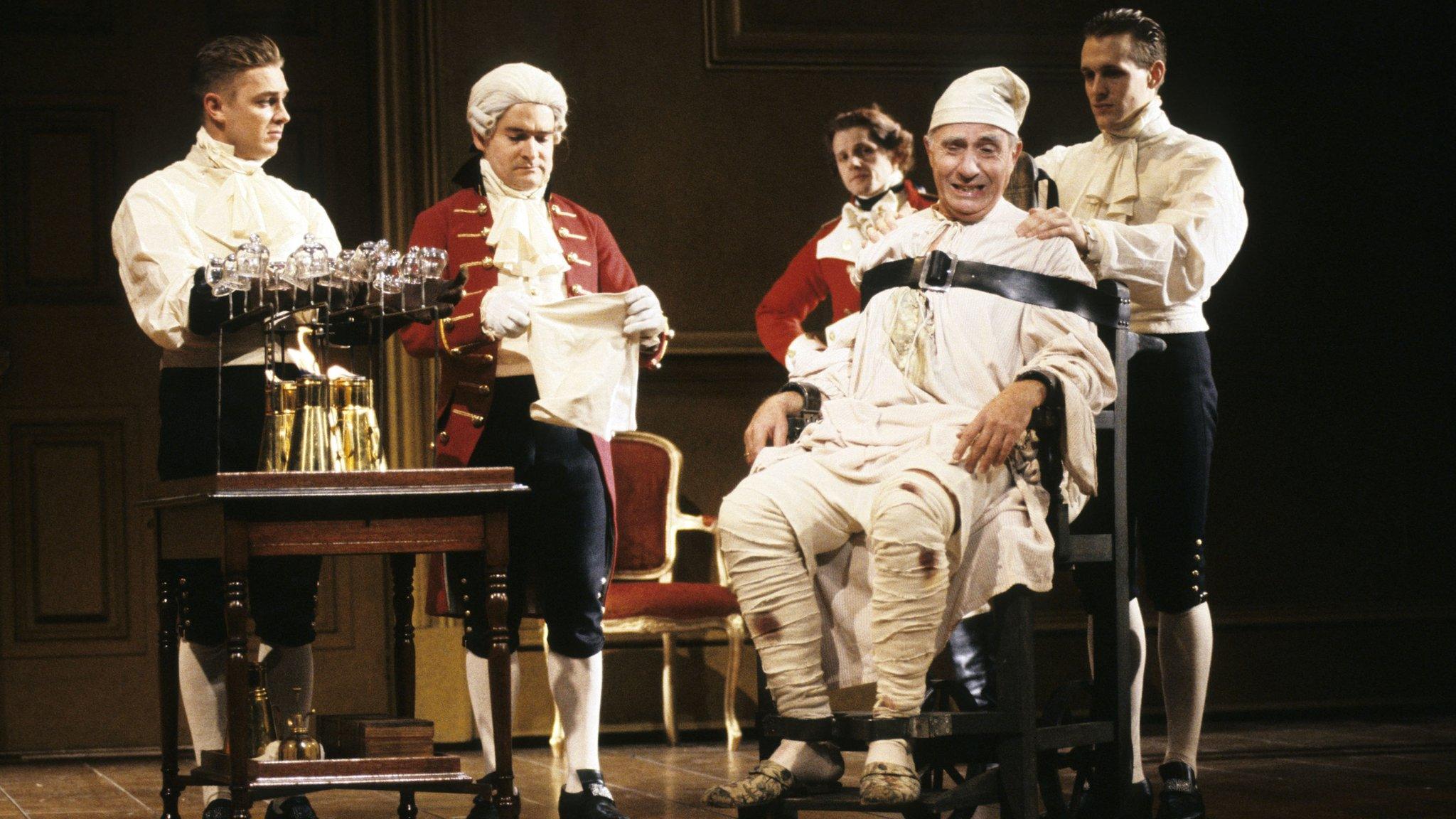
- Published24 May 2012
